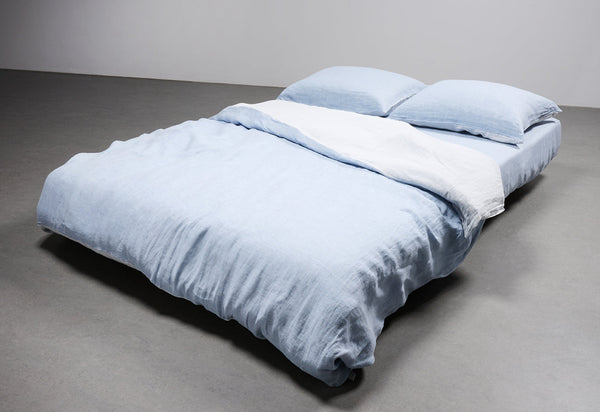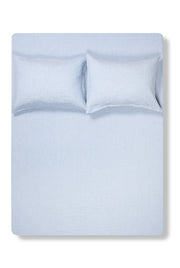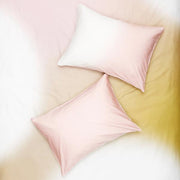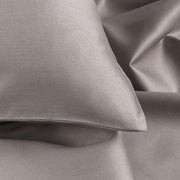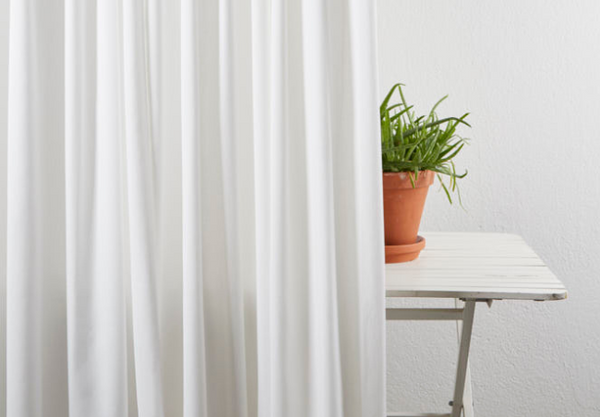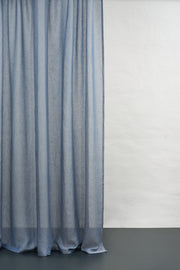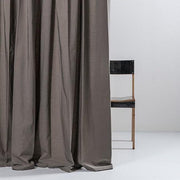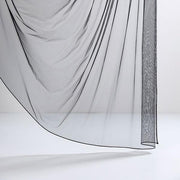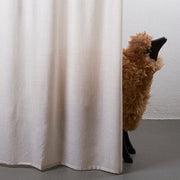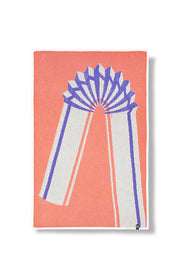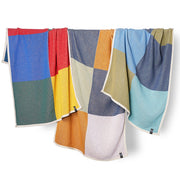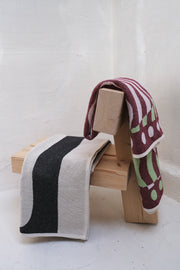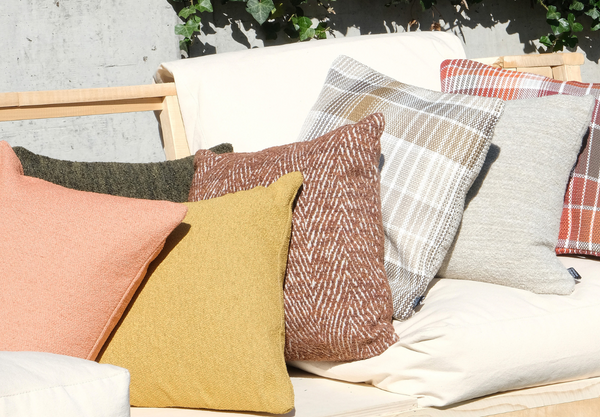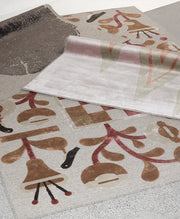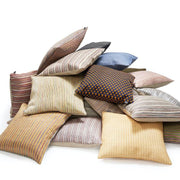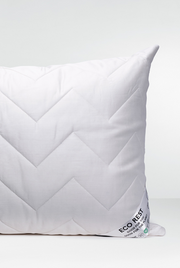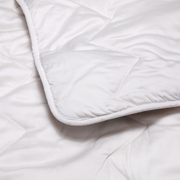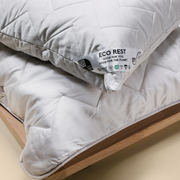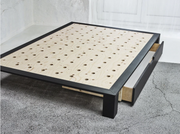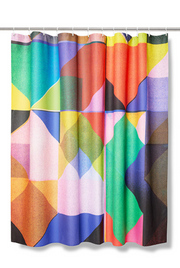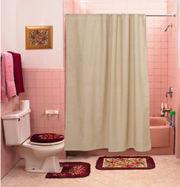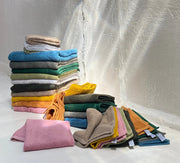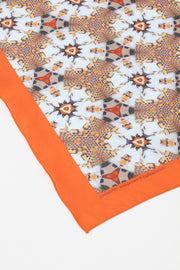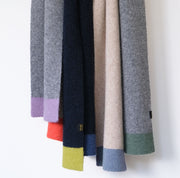If you often deal with allergies, eczema, or irritation, choosing the right bedding for sensitive skin can make a noticeable difference in how well you sleep. The fabric that surrounds you each night should feel gentle against your skin, offering comfort, relief, and a sense of ease that turns your bed into a true sanctuary.
Choosing bedding with the right texture and breathability changes how you feel through the night. It can calm irritation, help the air stay fresh, and keep you comfortable from evening to morning. The first step is knowing how each fabric behaves and which ones suit your skin best.
What is The Best Bedding Material for Sensitive Skin & Allergies?
Different fabrics interact with your skin in different ways. Some hold onto heat or trap moisture, while others let air move freely and feel soft from the first touch. For those with sensitivities, these differences can be the reason a night feels restful or uncomfortable.
When you look at the options, some fabrics stand out for how well they care for sensitive skin while maintaining comfort and quality over time. These include:
1. Organic Cotton Bedding
Organic cotton bedding gives you a cleaner, softer surface to sleep on. It’s grown from natural seeds without synthetic pesticides or chemical fertilizers and processed without harsh treatments, so it feels gentle from the very first night.
The long, smooth fibers move easily against your skin, reducing friction, while the fabric’s natural breathability helps maintain a comfortable temperature until morning.
2. Linen Bedding
Linen bedding, made from the flax plant, brings a relaxed elegance that works well for warm nights or hot sleepers. Its open weave lets air move freely and draws moisture away, so you stay fresh and dry.
The fabric softens noticeably with every wash, gaining comfort and character over time. Strong and durable, it holds up to regular laundering without losing its easy, lived-in feel.
Why Does Bedding Matter for Sensitive Skin?
For sensitive skin, the materials and treatments in bedding can influence comfort and skin health over time. A fabric that feels slightly rough, traps heat, or contains chemical finishes might seem fine at first, yet night after night it can cause irritation and affect the quality of your rest.
Here are 4 ways how your sheets can influence skin health:
- Friction and irritation: Rough or synthetic fabrics rub against the skin, which can worsen eczema or dermatitis.
- Trapped heat and moisture: Non-breathable materials like polyester hold warmth and sweat, creating a humid environment that encourages bacterial growth and may lead to rashes or breakouts.
- Allergen buildup: Bedding can collect dust mites, pet residue, and pollen, and certain fabrics or weaves trap more of these particles than others.
- Chemical residues: Some sheets are treated with wrinkle-resistant or stain-repellent finishes, often containing formaldehyde, which can release fumes that irritate both skin and airways.
How Do You Choose Bed Sheets for Sensitive Skin?
When you’re choosing new sheets, don’t just go by the promises on the label, but think about what will really make a difference to your comfort night after night.
Use this simple checklist to guide your choice:
1. Choose the Right Fiber Type
Choose 100% natural fibers for better breathability and a softer feel against the skin. Look for organic cotton bedding for purity and everyday comfort, linen bedding for strength and cool airflow, or Tencel for a smooth texture that helps regulate temperature.
Pick the one that matches your sleeping style, and you’ll reduce the risk of trapped heat or moisture that can lead to irritation.
2. Check for Trusted Certifications

Certifications prove your bedding meets strict safety and quality standards, which is essential for reducing the risk of skin irritation. Look for OEKO-TEX STANDARD 100 to be sure every part of the product, from fabric to thread, has been tested and confirmed free from harmful substances that can trigger reactions.
For organic bedding, choose Global Organic Textile Standard (GOTS) certification. This guarantees the cotton is grown organically and that every stage, from harvesting to dyeing, meets high environmental and social responsibility standards, giving you both comfort and peace of mind.
3. Choose the Right Weave
The weave of your bedding affects both comfort and performance over time. A percale weave offers a crisp, cool feel with a matte finish, and its breathability makes it ideal for warm sleepers.
Its tight structure also helps block dust mites, supporting allergy management. A sateen weave feels smoother and silkier, making it a better choice for reducing friction on highly sensitive or eczema-prone skin.
4. Finishes and Dyes
Sheets labeled “wrinkle-free” or “stain-resistant” often use chemical treatments, which may not be the best match for sensitive skin. For a gentler option, you can look for bedding made with non-toxic, low-impact dyes. For the purest option, you can choose undyed, natural colors that feel gentle and look timeless.
5. Match Your Choice to Your Needs
Your ideal bedding depends on how your body reacts during the night. For allergy management, a tightly woven organic cotton percale makes it harder for dust mites to settle and holds up to frequent hot washes. Hot sleepers benefit from breathable linen or cotton percale, which allows air to circulate and wicks away moisture.
6. Choose With Care for Babies and Children
Because a child’s skin is more delicate and absorbent than an adult’s, gentle materials become even more important. This is where GOTS-certified organic cotton stands out, offering a soft surface without harsh chemicals from the way it’s grown to the way it’s finished. As a result, it can be a thoughtful and reassuring choice for younger sleepers.
Sleep Better with Bedding Designed for Sensitive Skin
Choosing the right bedding is one of the simplest ways to improve comfort and support skin health. By focusing on pure materials and proven certifications, you create a sleep environment that regulates temperature, feels inviting, and helps you wake up refreshed without the irritation that can come from synthetic fabrics or harsh treatments.
ZigZagZurich makes this choice easy. Our organic bedding meets OEKO-TEX STANDARD 100 and Global Organic Textile Standard (GOTS) standards, so every piece is free from harmful chemicals and safe for sensitive skin and allergy-conscious sleepers. Each design combines natural, breathable fabrics with lasting quality, so your bed looks beautiful and feels comfortable night after night.
Explore ZigZagZurich's organic bedding made with natural, breathable materials for comfort that lasts.
Frequently Asked Questions
1. What types of bedding are suitable for sensitive skin?
The most suitable bedding types are made from 100% natural, breathable, and hypoallergenic fibers. Try using GOTS-certified organic cotton, linen, silk, or tencel. These materials are gentle on the skin, allow for air circulation, and are less likely to harbor allergens or contain chemical irritants.
2. What sheets are best for eczema?
For eczema, the best sheets are those that are exceptionally smooth to reduce friction. An organic cotton sateen weave is often recommended for its silky feel. It’s also vital to choose sheets that are free from harsh dyes and chemical finishes, which is why GOTS and OEKO-TEX certifications are the top choice if you have eczema.
